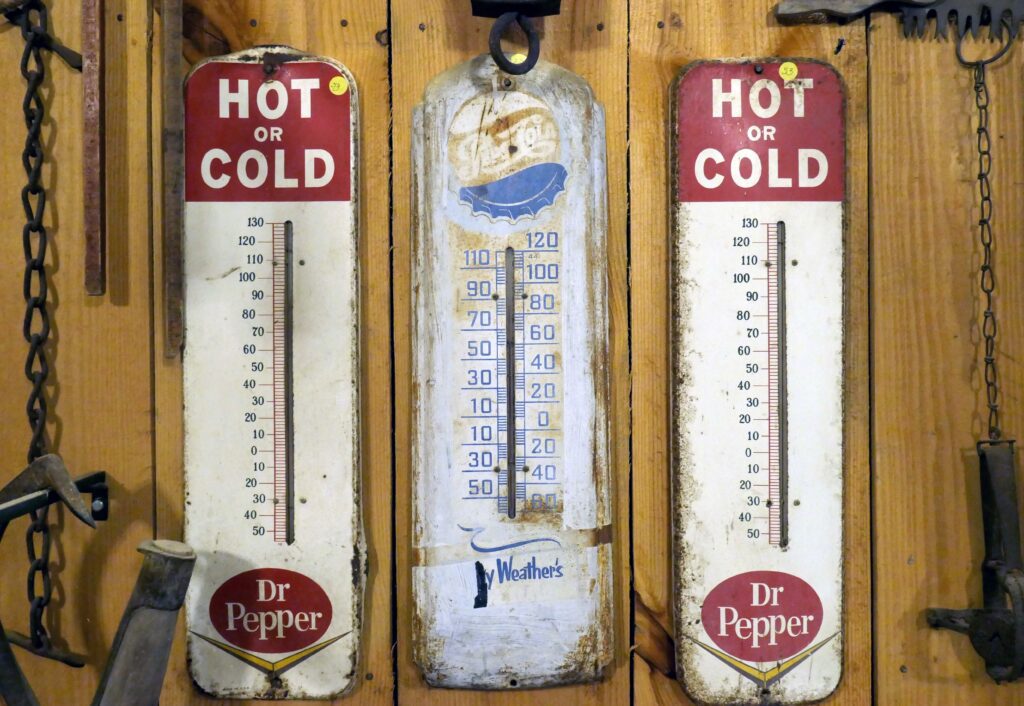We strive to provide you with authoritative, trustworthy, and expert advice. In doing so, the staff at bbqdropout.com performs extensive research, editing, and fact checking to every post on this webiste. If you feel that this article can improve, please feel free to reach us at staff@bbqdropout.com
Before continuing this article, I wanted to let you know that I have a YouTube channel where I showcase all sorts of video content related to BBQ. Subscribing would mean a lot to me, and I very much appreicate all the support!
Traeger Pellets vs Other Brands
Traeger grills can technically burn any 100% hardwood pellet that is meant for culinary use in a wood pellet grill.
This includes brands like Lumberjack Grills, Camp Chef, and Pit Boss, just to name a few.
However, Traeger does have language in their warranty policy, where any damage caused by using another brand of wood pellets might not be honored.

Some of the top alternative wood pellets that are popularly used in Traeger grills come from manufacturers like Pit Boss, Lumberjack Grills, and Camp Chef.
While each brand is made from the kind of high-quality 100% hardwood material that Traeger grills are meant to run on there are some distinct differences to note.
Lumberjack Grills wood pellets use debarked oak, which gives them good physical integrity, minimal dust, and a hot burning temperature.

When they make an accent wood pellet with a named wood, they leave the bark on the trees they harvest.
The bark carries a more robust, authentic flavor, which makes Lumberjack Grill’s wood pellet popular with barbecue purists, who want a traditional wood smoke.
Camp Chef prides itself on making wood pellets from responsibly harvested trees, rather than byproduct wood fibers.

This helps them ensure the highest standards for quality control.
This also means that their wood pellets have more natural oils and named wood organic compounds which produce a robust, traditional smoke.
Many wood pellet grill enthusiasts rank Camp Chef’s wood pellets even with Trager for flavor and heat performance.
All at a price that is generally lower per bag.

Pit Boss wood pellets are made in tandem with their parent company Louisiana Grills.
Though Pit Boss is allowed to maintain its own identity and a staggering array of up to 14 different blended varieties.
This makes Pit Boss wood pellets very versatile, while still having a lot of smoke from the named wood in their varieties.
What Pellets Can You Use in a Traeger?
You can use just about any culinary-grade, high-quality wood pellets made from 100% hardwood in a Traeger grill.

Though Traeger strongly encourages all their grill owners to only use their brand of premium wood pellets.
If you use a different brand and they damage your wood pellet grill, Traeger might void the warranty coverage on the repair, under the clause of using Non-Compatible Fuels, in the grill.

You should never use pellets that are meant for a wood pellet stove or furnace.
These pellets might look similar to grill pellets, but they are made from low-quality woods, they tend to burn very hotly, and have chemical binders that are not safe for smoking food.
Lumberjack Pellets
The thing that stands out the most about Lumberjack Grills wood pellets is that they don’t use the bark from the oak base wood fibers, but always include the bark from any blends with a named accent wood.
Since the bark fibers make a stronger smoke, this helps the accent woods to stand out more than the generally milder accent blends offered by Traeger’s wood pellets.
You might also want to note that Lumberjack Grills makes Cabela’s wood pellets using the same process.
Though Cabela’s wood pellets have their own distinct blends and marketing language.
Lumberjack pellets tend to have good integrity, though it’s still a good idea to sift them before pouring them into your Traeger’s hopper.
This prevents dust and stray wood fibers from fouling the auger or getting jammed in the auger shaft.
Camp Chef Pellets
Camp Chef proudly makes their wood pellets from virgin harvested trees, instead of lumber processing byproduct wood fibers.
This means that more of the organic oils and compounds remain in the pellets, which gives their smoke a greater depth of flavor, and robustness.
Camp Chef also uses a special kiln-dried process to produce wood pellets with low moisture content for a very dry, hot burning pellet.
The high heat potential of Camp Chef Pellets is on par with Traeger’s.
This also means that just like Traeger you are left with very little ash in the firepot after even a long smoking session.
Pit Boss Pellets
Pit Boss wood pellets are available in up to 14 different blended varieties.
This makes Pit Boss wood pellets very versatile, while still having a lot of smoke from the named wood in their different blends.
They don’t tend to burn as hot as Traeger wood pellets, but they offer up a more robust flavor and aroma.
Pit Boss wood pellets also tend to have slightly lower physical integrity, which is likely due to the compression process that forms them and the lower lignin content in some of their named wood blends.
This means you should always sift Pit Boss pellets before pouring them into your Traeger’s hopper.
This will help prevent possible auger jams and burn-back problems.
Pit Boss wood pellets also tend to leave behind a little more ash than Traeger’s.
This is a minor factor that will only show up in very long smoking sessions.
You should also make it a point to always vacuum out your Traeger’s firepot after every use
Can Traeger Use Other Pellets?
A Traeger grill can technically burn culinary-grade wood pellets made from 100% hardwood and non-chemical binders.
However, Traeger’s warranty language notes that coverage for repairs caused by using “Non-Compatible Fuel Sources” is void.

Meaning if you use another brand of wood pellets in your Traeger and it causes a severe jam or burn back damage, Traeger might choose not to honor the warranty for repair or replacement costs.
Does It Really Matter What Traeger Pellets You Use?
From a performance standpoint, all Traeger brand wood pellets will burn hot and clean with robust, flavorful smoke, which means they will all do a good job of smoking meat.

Barbecue purists who believe that specific cuts of meat, need to be smoked with specific types of wood insist on sticking to these traditions.
This is why Traeger offers up six different blends with many having a higher percentage of named woods to cater to barbecue purists.
However, these accent blends sometimes draw complaints from barbecue purists for not having a very high percentage of named wood fibers in them.
This drives some to look toward other brands like Pit Boss, Louisiana Grills, Kingsford, Camp Chef, and Lumberjack Grills for a pellet that has a higher percentage of named woods, or greater potency.
Are Pit Boss Pellets and Traeger Pellets the Same?
While both use 100% hardwood with all-natural lignin binders and no fillers, Traeger and Pit Boss wood pellets are not identical.
Traeger’s pellets are made with a proprietary three-stage drying process and formed at higher compression.
This leads to rapid preheating, higher heat potential, and incredibly low ash production.
This also means that Traeger’s premium wood pellets are sold at a higher price around $17 to $20 for a 20-pound bag.
Also, Traeger only offers up to 6 blended varieties of wood pellets.
Some barbecue purists complain that the amount of accent wood in these blends is relatively low for some traditional barbecue pairings.
Pit Boss wood pellets are also high quality, made from pure hardwood and organic lignin binders.
Though they don’t have the same physical integrity as Traeger’s pellets, which makes them more prone to leaving dust and stray wood fibers in the bag.
So, it’s wise to sift them before adding Pit Boss pellets to your Traeger grill.
Pit Boss wood pellets don’t burn quite as hot or as fast as Traeger.
However, the preheating time and high heat aren’t that far off.
Though Pit Boss pellets do leave a little more ash behind in the firepot, which you should be vacuuming out after every use anyway.
Pit Boss gets a leg up on Traeger’s wood pellets in that they offer 14 different blended varieties.
Each is known for having a potent amount of the named accent woods.
This appeals strongly to barbecue purists who are looking for robust cherry, mesquite, apple, or hickory smoke to pair with traditional cuts of meat.
Pit Boss wood pellets are also cheaper for a 20-pound bag than Traeger.
You can often find them for $12.99 to $15.99, as opposed to Traeger’s 20-pound bags, which can run you as much as $20 or more.
Final Thoughts
There are certainly some great alternative wood pellet brands that will work in a Traeger.
Just be mindful that if another brand of wood pellets damages your Traeger’s auger, auger shaft, or caused a burn back incident, Traeger may very well opt not to honor the warranty for the incident.
So, it’s always a good idea to sift your pellets in advance to prevent wood fibers from causing a jam.
Then always vacuum out your Traeger’s firepot after every use to eliminate ash buildup.
Different brands also make interesting blends of wood pellets to compete with Traeger.
Though not all heat up as rapidly or leave as little ash behind as Traeger’s premium pellets.
Pit Boss, which is made by Louisiana Grills, offers up to 14 different blends with named woods to accent the smoke.
This makes them a very popular choice for barbecue purists.
Lumberjack grills wood pellets are also very popular with barbecue purists, as they don’t use oak bark, but add in a higher percentage of bark from named woods.
This gives them mesquite, cherry, and hickory blends more authentic traditional smoke.
Camp Chef’s wood pellets stand as a top competitor to Traeger in quality, performance, and smoke density.
This is thanks in part to the fact that Camp Chef sourced virgin wood, rather than timber processing byproducts.
You can also get Camp Chef’s pellets at a slightly lower price per pound compared to Traeger.
Robert is a certified Pitmaster, with over a decade of experience in smoking the best meats you’ll ever feast upon. He also has a Bachelor of Business Administration from the University of Texas at San Antonio. When he’s not researching technical topics, he’s most likely barbecuing in his backyard.
